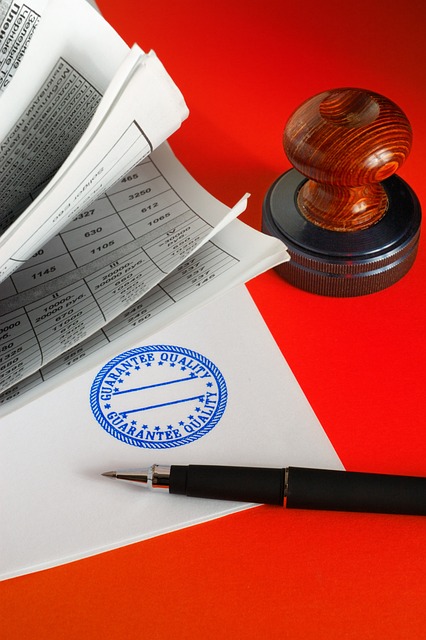Obtaining licenses and permits in the UK requires understanding dynamic sector-specific regulations, starting with defining business operations and consulting official resources. The process involves application, documentation, and record-keeping, with digital platforms offering convenience. Globalized businesses face challenges navigating these rules, making Licenses and Permits UK translation services critical for accurate, culturally sensitive documentation and compliance. Professional translators ensure legal soundness, facilitating growth by overcoming regulatory hurdles. Engaging these services mitigates delays, fines, and disputes, while official government resources streamline applications.
Navigating UK permit regulations is crucial for any business looking to operate within the country. This comprehensive guide breaks down essential steps, from understanding the overview of UK permit regulations to obtaining necessary licenses and permits. We explore the role of professional translation services in ensuring compliance and highlight common pitfalls to avoid. Additionally, we provide key resources and contacts to stay updated, helping you navigate this intricate process with confidence.
- Understanding UK Permit Regulations: An Overview
- Obtaining Licenses and Permits: Steps to Follow
- The Role of Translation Services in Compliance
- Common Pitfalls and How to Avoid Them
- Staying Updated: Key Resources and Contacts
Understanding UK Permit Regulations: An Overview

The UK’s permit regulations are a complex web of rules and guidelines designed to manage various activities, from construction projects to importing goods. Understanding this legal framework is essential for anyone looking to operate within the country, especially businesses offering services like licenses and permits UK translation. These regulations are regularly updated and vary across different sectors, so staying informed is crucial.
Compliance isn’t just about avoiding penalties; it ensures a level playing field for all businesses and helps maintain public safety and environmental standards. For instance, construction projects require specific permits to ensure buildings meet safety and structural integrity criteria. Similarly, translation services must adhere to data protection laws when handling sensitive client information, reflecting the UK’s commitment to privacy rights.
Obtaining Licenses and Permits: Steps to Follow

Obtaining Licenses and Permits: Steps to Follow
The first step in ensuring compliance with UK permit regulations is to identify which licenses and permits are required for your specific activity or business. This process begins with a thorough understanding of your organization’s operations and the relevant laws governing them. It’s crucial to consult official government resources, such as the UK government website, to stay updated on current regulations and requirements. Engaging UK translation services might be necessary if your business involves international operations, ensuring all documentation is accurately translated and complies with local standards.
Once you’ve identified the necessary licenses and permits, it’s time to initiate the application process. This typically involves gathering relevant documents, completing online forms, and paying associated fees. Many applications can be submitted digitally through dedicated government portals, streamlining the process. It’s essential to keep meticulous records of all applications, communications with regulatory bodies, and corresponding documentation throughout this phase.
The Role of Translation Services in Compliance

In today’s globalised world, businesses operating in the UK often need to navigate complex regulatory landscapes, especially when it comes to licenses and permits. This is where UK translation services play a vital role. Accurate and reliable translations ensure that all documentation required for compliance is not only correct but also fully understood by relevant authorities. With precision and expertise, these services help businesses avoid costly mistakes and potential legal issues stemming from misinterpreted or incorrectly translated documents.
Translation goes beyond mere word-for-word substitution; it involves understanding the cultural nuances and regulatory requirements specific to the UK. Professional translators are adept at translating technical terms accurately and ensuring that the final document is legally sound. This is particularly crucial when dealing with permits and licenses, which often have strict criteria and requirements. By leveraging UK translation services, businesses can ensure their applications are complete and correct, thereby facilitating a smoother compliance process.
Common Pitfalls and How to Avoid Them

Many businesses, both local and international, often fall into common traps when it comes to navigating UK permit regulations, especially regarding licenses and permits. These pitfalls can cause significant delays, fines, or even legal disputes. One of the primary issues is misunderstanding the specific requirements for different types of permits, leading to applications that are incomplete or incorrect. This is where professional translation services become indispensable, ensuring your application materials are accurately translated and tailored to meet UK standards.
Another frequent mistake is ignoring local laws and regulations, especially when operating in multiple regions. Failure to obtain the right permits can result in business operations being halted or facing severe legal repercussions. To avoid these pitfalls, businesses should invest time in researching and understanding the applicable permits required for their activities. Engaging specialized UK translation services can help streamline this process by providing native-language expertise, ensuring compliance from the outset.
Staying Updated: Key Resources and Contacts

Staying updated with the latest changes in regulations is essential for any business operating within the UK. This includes understanding the specific requirements for licenses and permits, which can vary across different sectors. One crucial resource for businesses is the official government websites, such as GOV.UK, where the most current information on permits and licensing is readily available. These platforms offer comprehensive guides, application forms, and detailed explanations to help businesses navigate the process efficiently.
Additionally, engaging with professional translation services can be invaluable when dealing with UK permit regulations. Many licenses and applications may require documentation in specific languages, especially for international businesses or those operating in diverse linguistic regions. Reputable translation companies can ensure that all documents are accurately translated, meeting the necessary standards set by the UK government. This proactive approach not only facilitates smoother compliance but also demonstrates a commitment to maintaining high-quality standards across all aspects of operations.
When navigating the complex landscape of UK permit regulations, understanding the requirements and staying compliant is key. By following the outlined steps for license acquisition and leveraging professional translation services, businesses can efficiently manage their compliance. Awareness of common pitfalls allows organizations to steer clear of potential issues. Staying updated with resources and maintaining open lines of communication with relevant contacts ensures a seamless process. Remember, meticulous attention to licenses and permits, coupled with accurate translations, is essential for success in the UK market.
